When you google ‘what to do in Kanchanaburi’ the first three things you find will be information about the Thailand-Burma Railway Centre, the Burma Railway (Death Railway) and the Kanchanaburi War Cemetery. So as you notice Kanchanaburi has a big history from the Second World War.
Besides those three must see I would also recommend going to the Hellfire Pass memorial museum and the walking trail because besides the beautiful nature you can now experience what you have learned in history class and which not a lot of people can.
The Hellfire Pass memorial museum and the grounds along the Hellfire Pass are maintained by the Australian government.
I would recommend taking the audio tour (in Dutch, English and Thai) during the museum and the walking trail. During the audio tour you will hear survivors of the Death Railway describing their hardships and their personal experiences. This will take your breath away and this will make it feel more real than just walking the trail. You also don’t want to wish this to anybody even your worst enemy!
The museum will tell you all about the history of making the Hellfire Pass. After that you can go to the contemplation deck and the walking trail.
The whole walking trail takes about 3 hours, return. You can also walk until the memorial stone and walk back. We however walked pass the memorial stone which I recommend doing because there are almost no tourist and with the audio you really feel the pain of the prisoners. It is unbelievably what those prisoners have accomplished in such a short time.
We arranged to get picked up at the end of the trail instead of walking back. To be honest I wouldn’t wanted to walk all the way back but that’s also because it started to rain.
Here are some pictures I took during the walking trail.
I can’t remember why I didn’t take any pictures inside the museum. I think I was shocked about what the prisoners went through that I didn’t wanted to take any pictures of that.
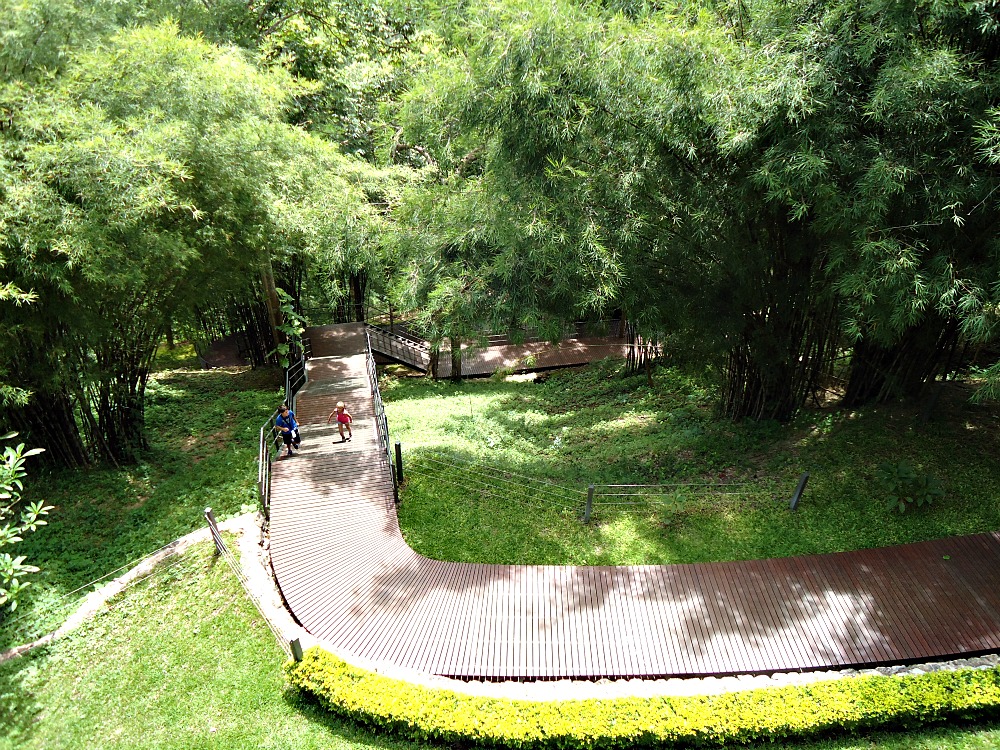
Walk down to the walking trail.
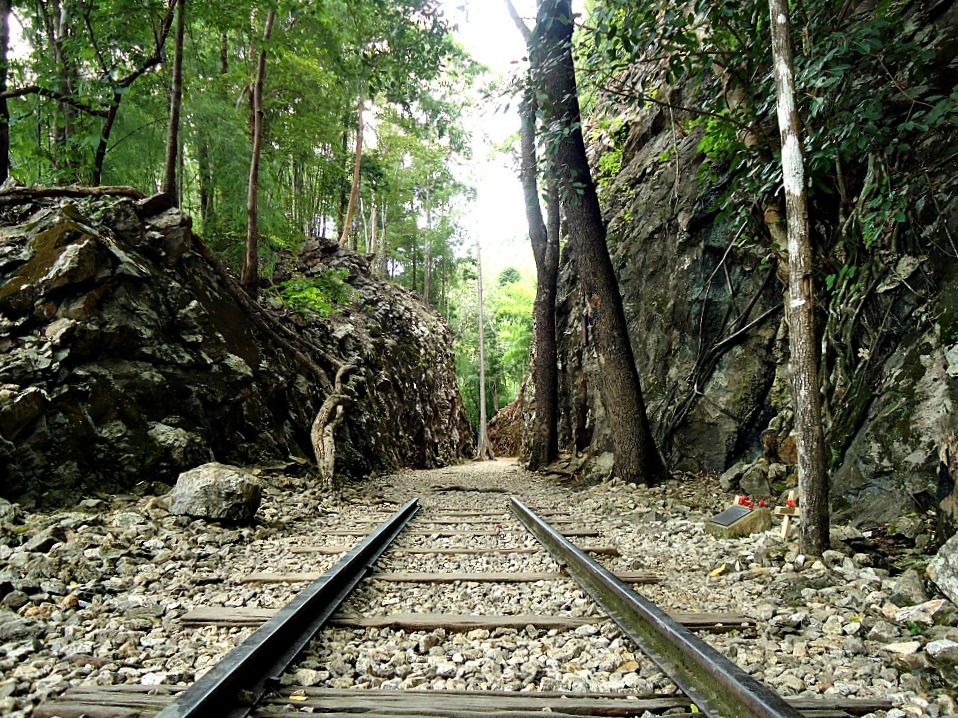 Part of a rail.
Part of a rail.
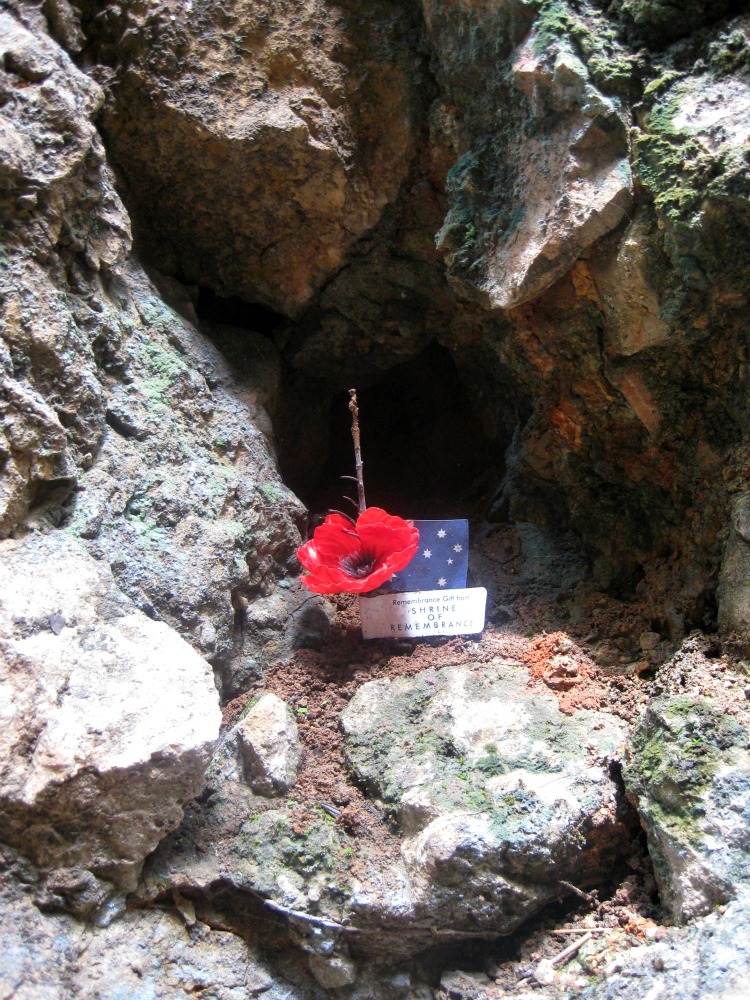
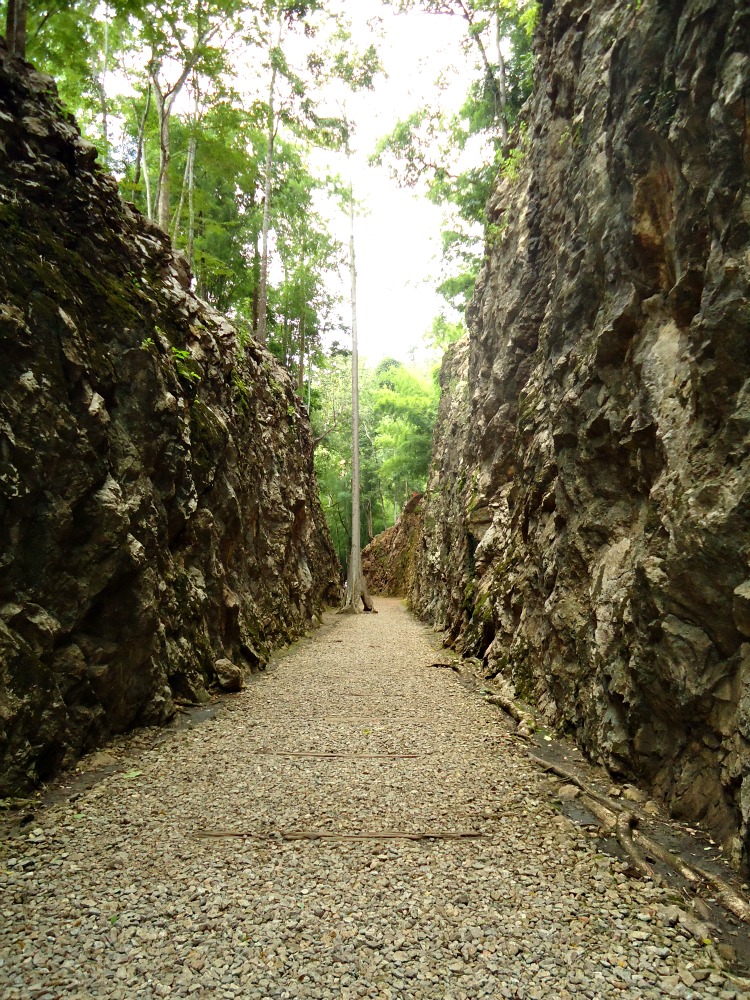
Prisoners made their way through this rock by carving it out with only their hands and some crappy tools.
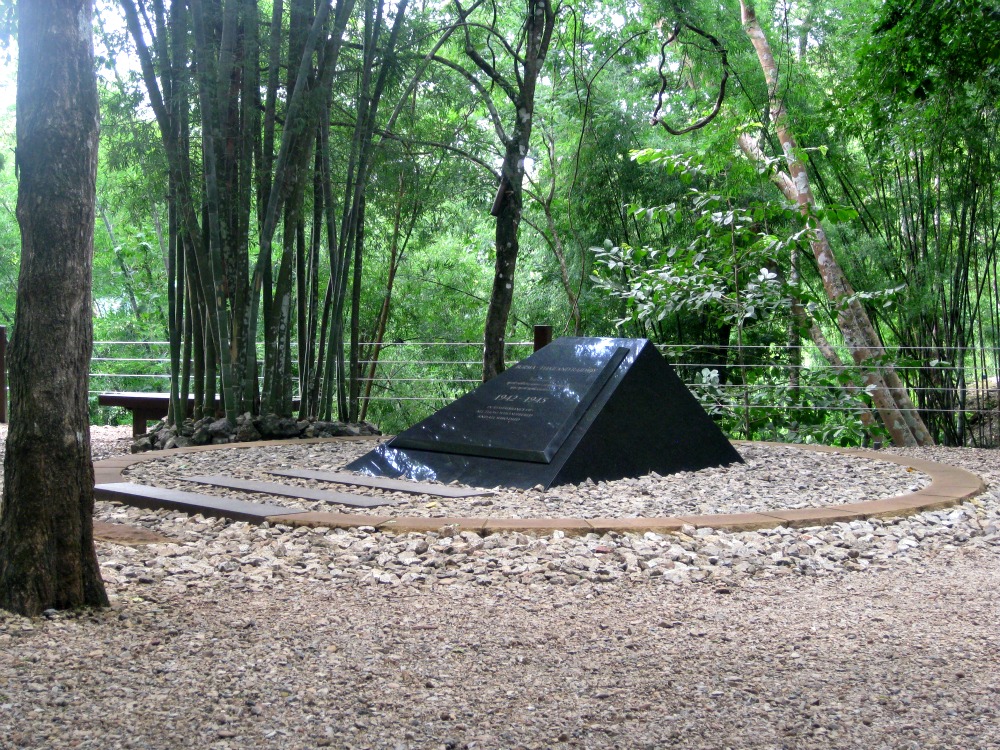
The Memorial stone. You can walk back or walk further until the end.
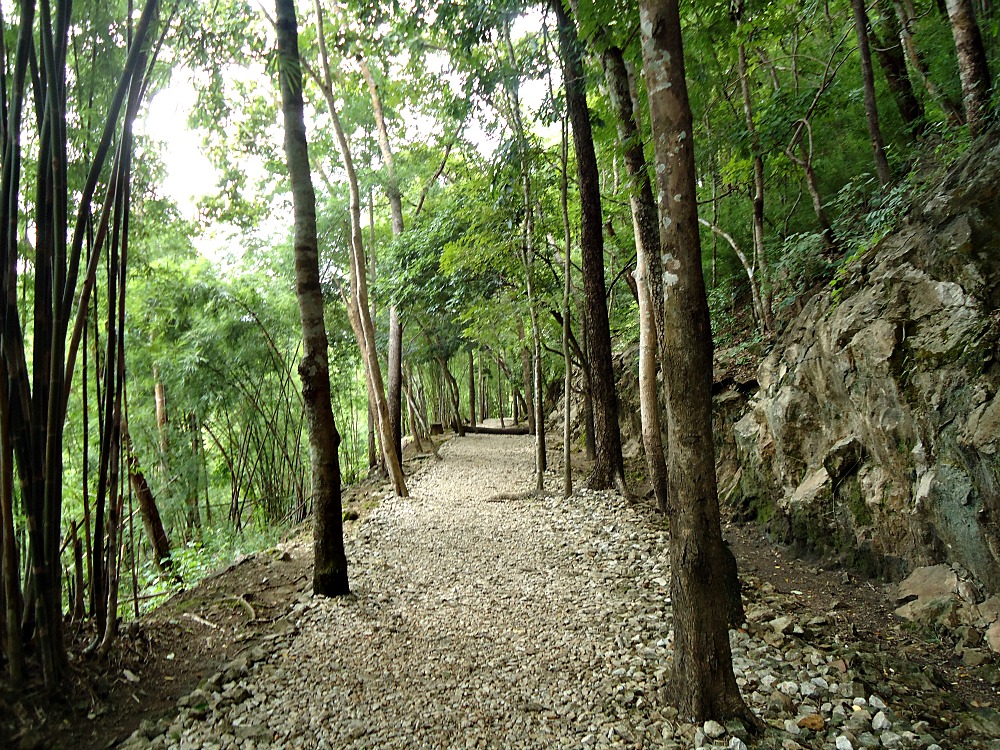
How does a train fit through here?!
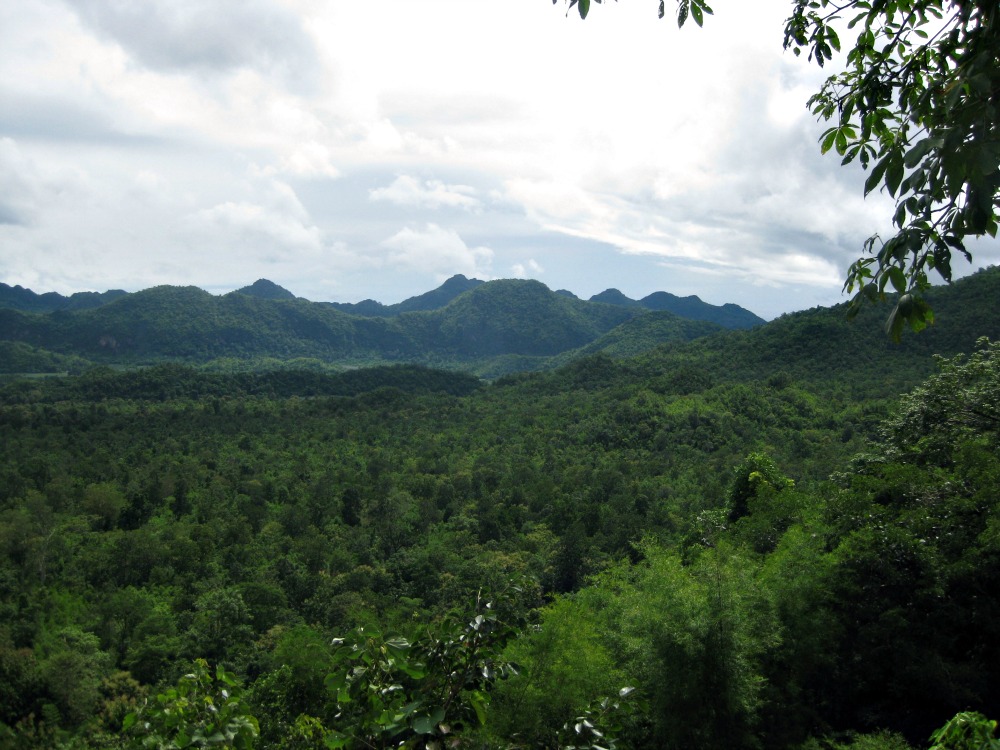
One of the many lookouts. Here there is a bench you can rest and hear a story of one of the survivors.
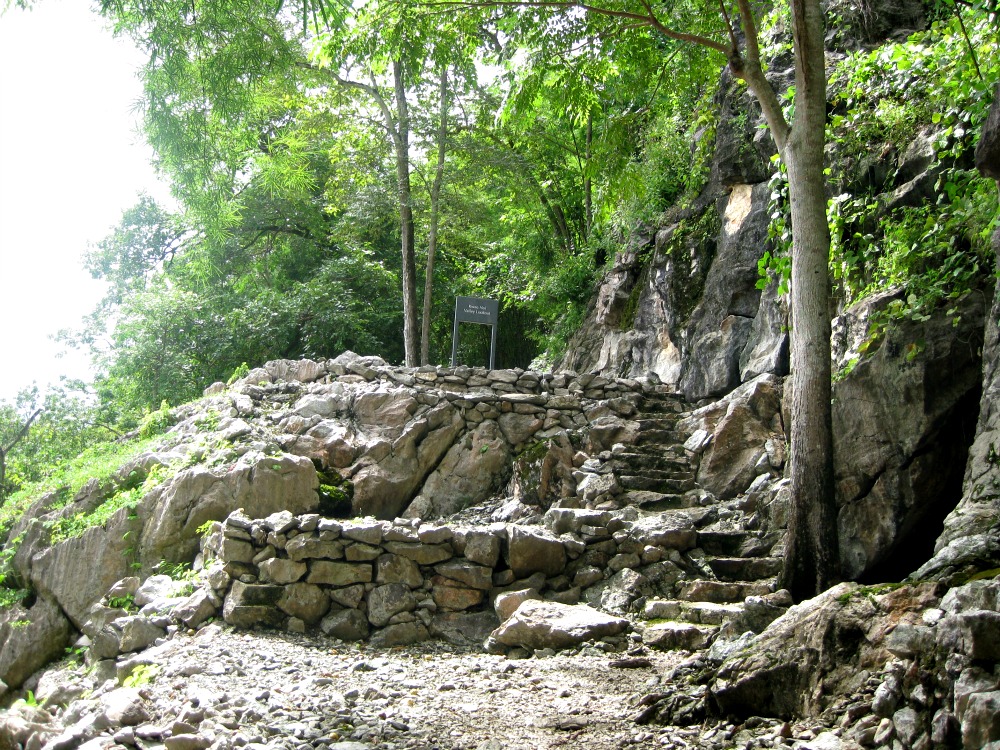
Be careful walking up the stairs as they can be unstable and slippery.
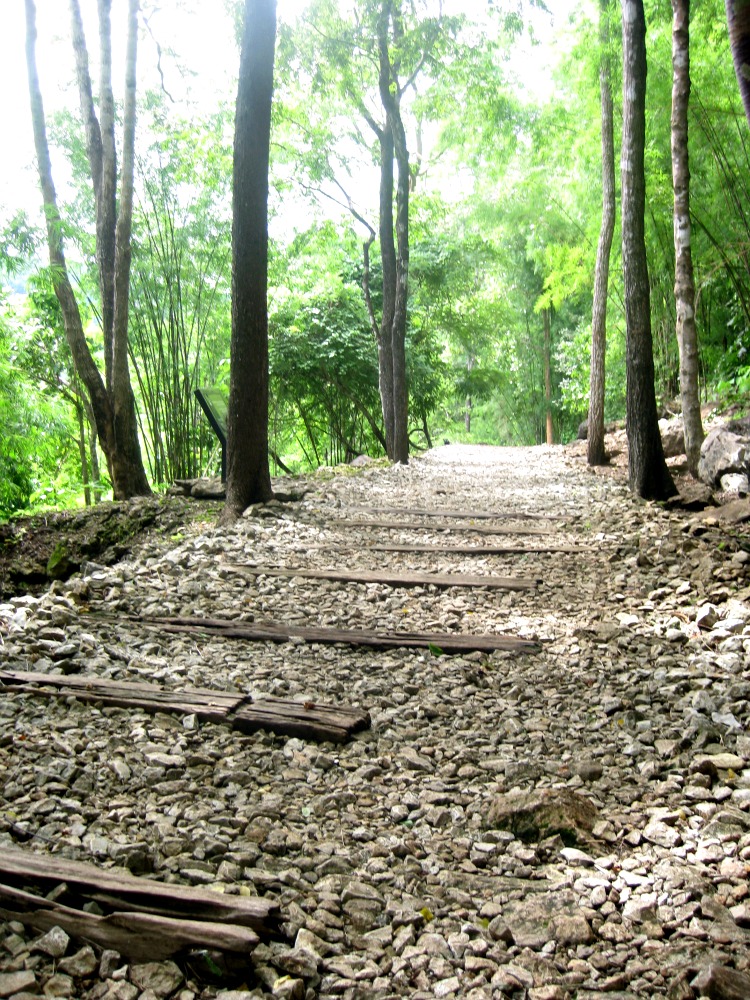
Parts from the rails.
The reason it is called the Hellfire Pass is because the sight of prisoners working at night by torchlight resembled Hell. The Hellfire Pass has killed 16,000 Allied POWs and 90,000 Asian because of the harsh work, working 18 hours a day without proper food and water, therefore starvation and exhaustion. Beaten to death by the Japanese as well as many diseases that were going around.

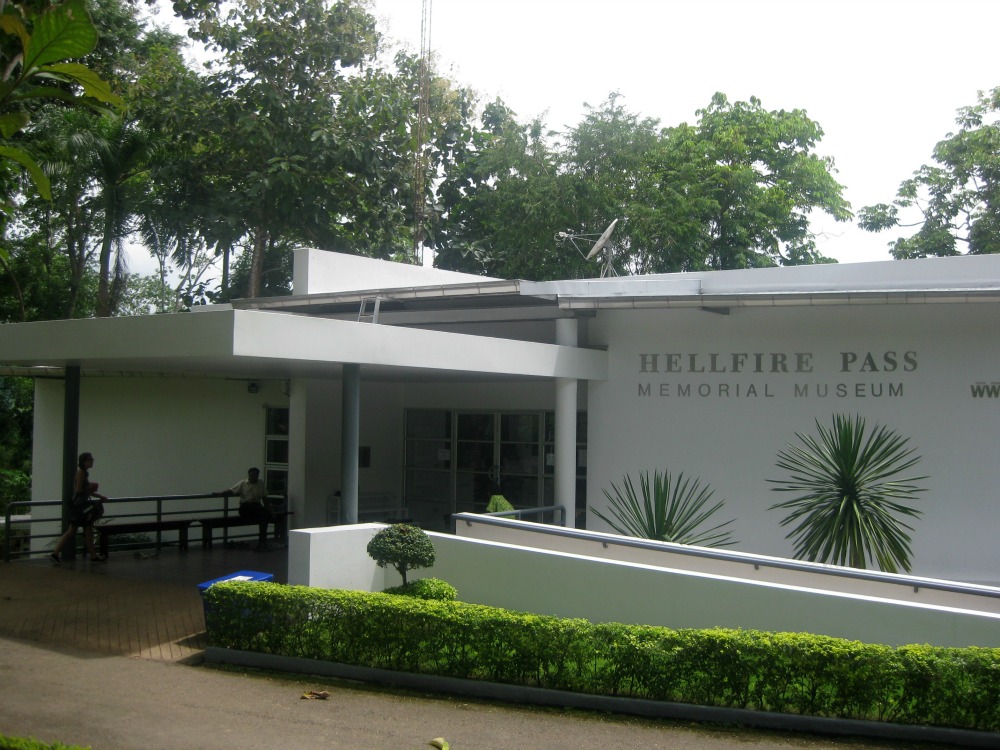
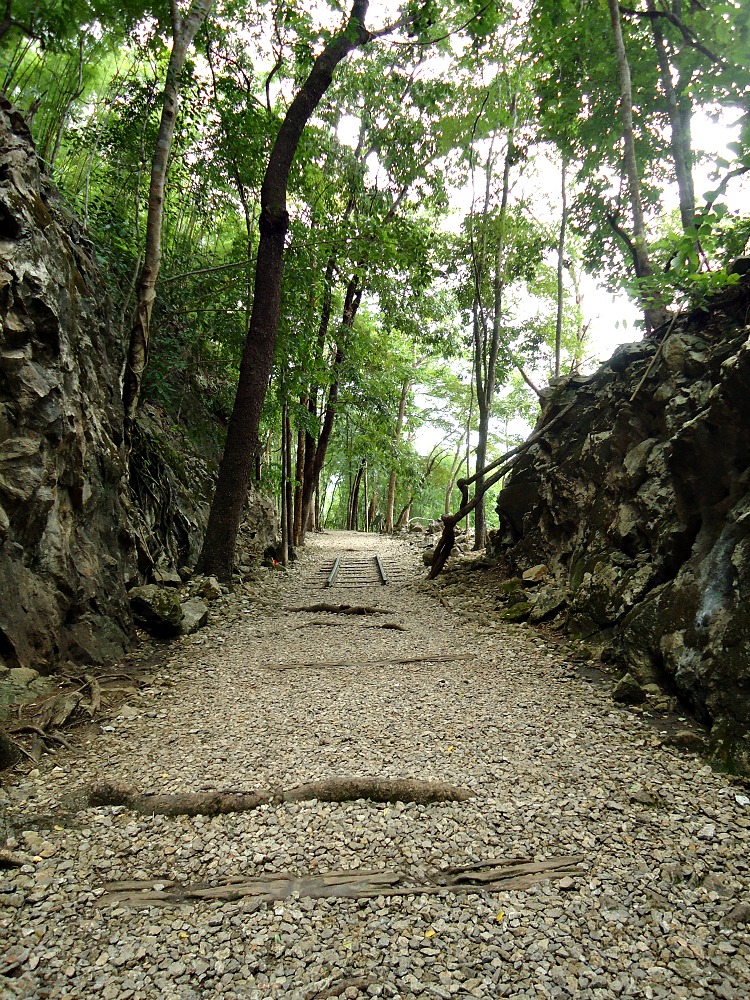
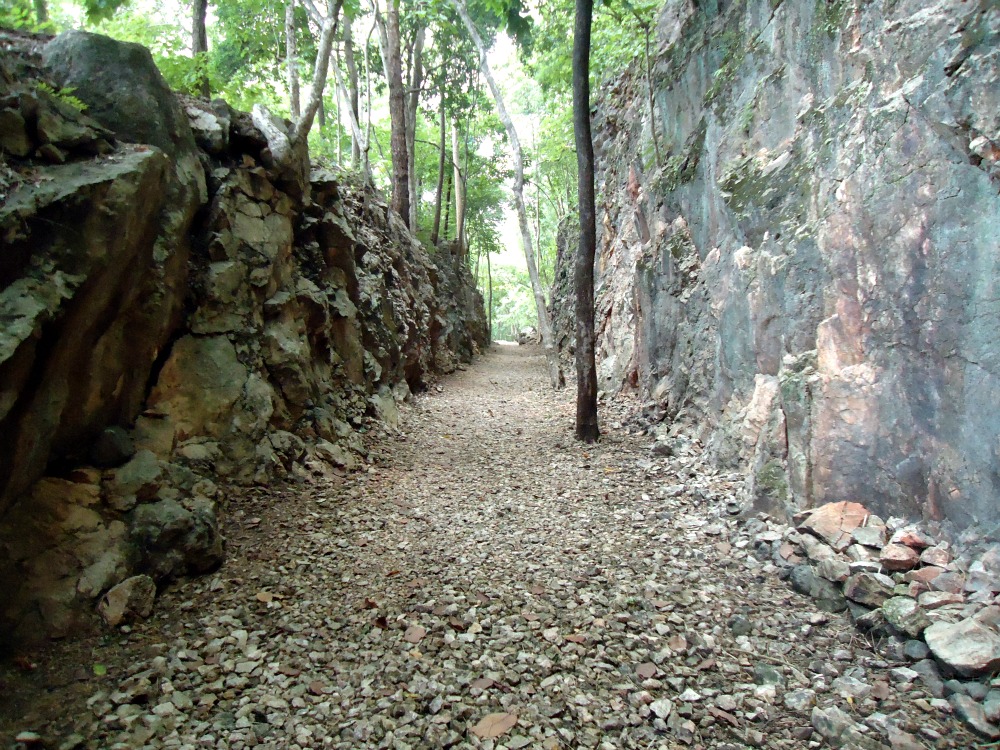
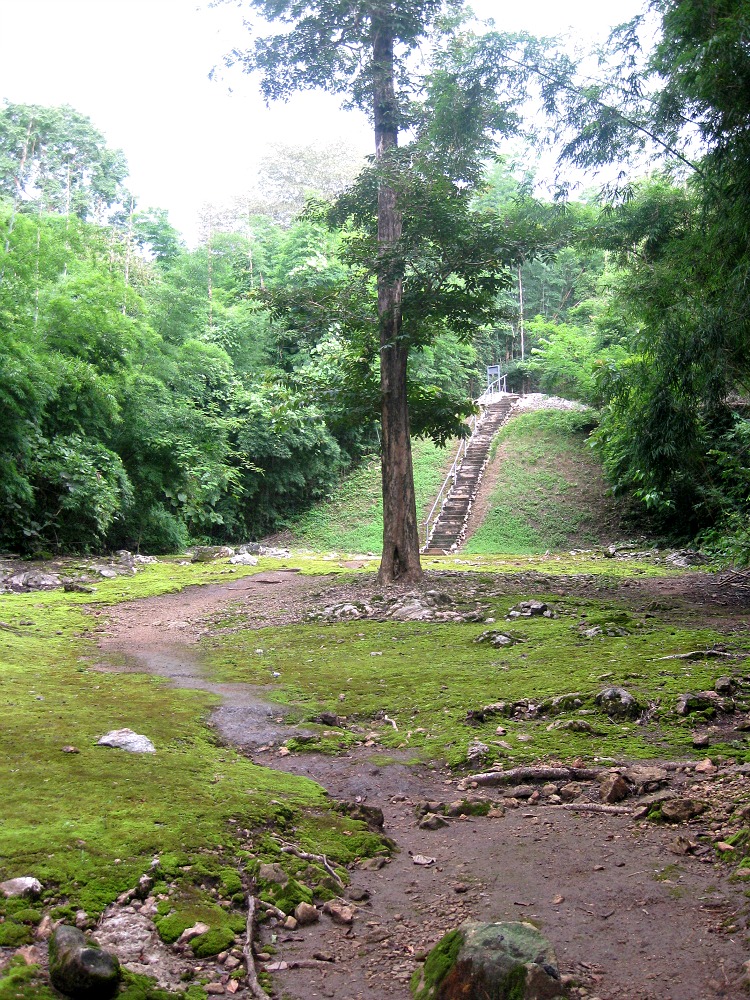
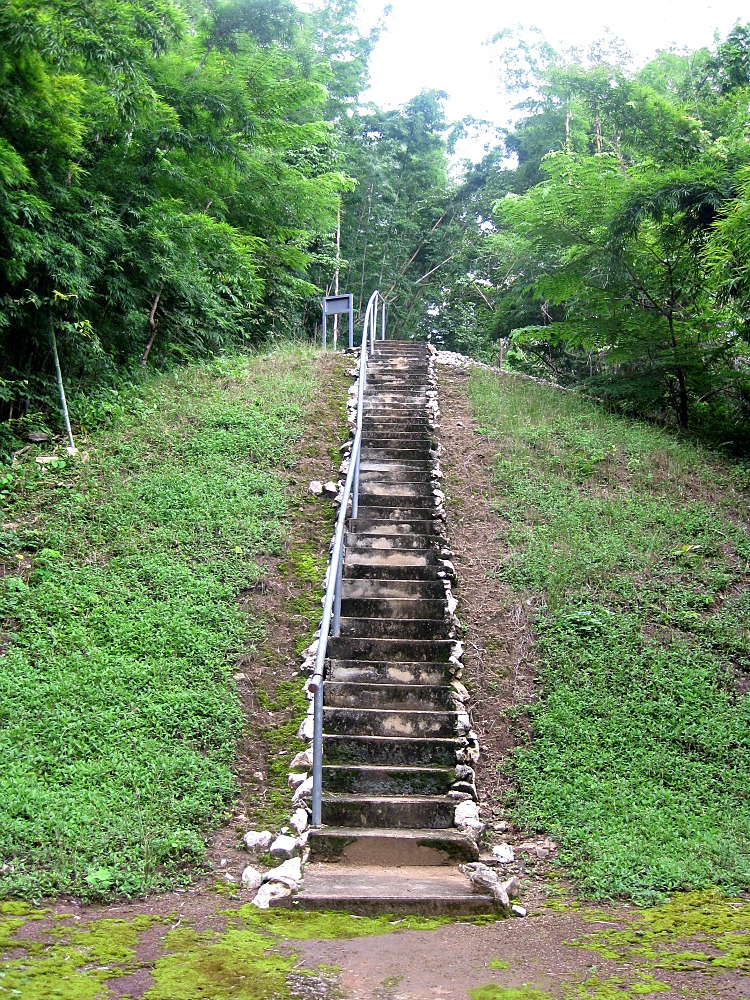
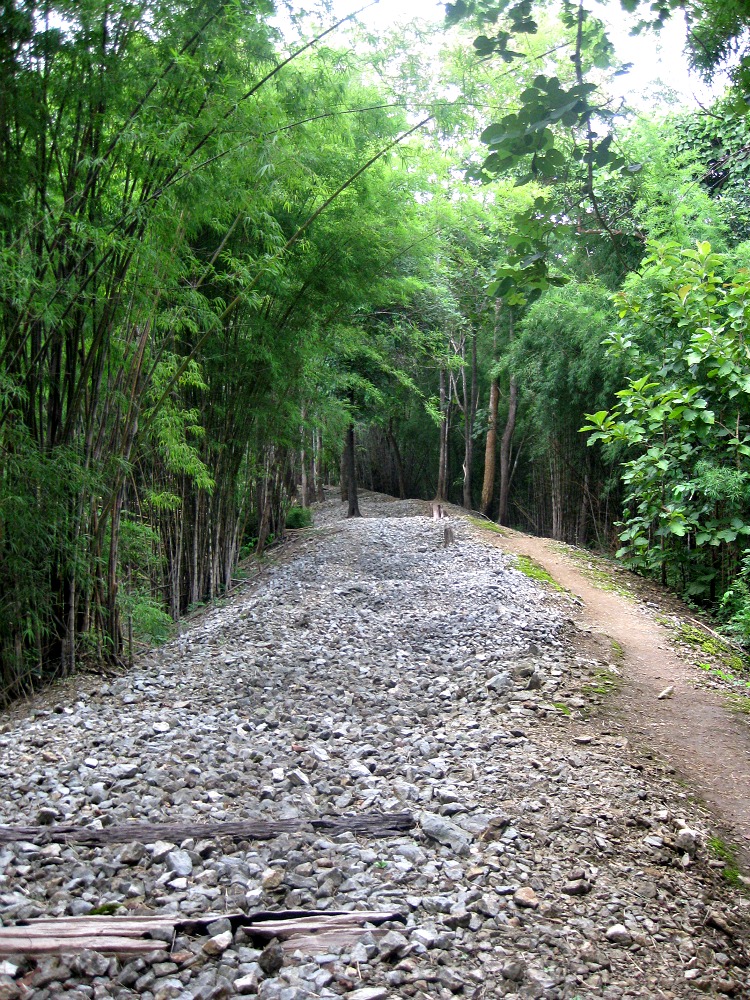
Wat een lange tour, maar ik zou wel overwegen om het volledig af te wandelen. Mooie foto’s, Marlies!
Author
Zeer lange tour maar de tijd vliegt voorbij met de audio tour en de natuur. Zeker een aanrader en dank je! 🙂
The peaceful nature you photograph and tye painful history you describe really creates a vivid experience if what Hellfire Pass must feel like. Really interesting piece about a portion of War history not heavily discussed in the US where I’m from.
Author
Thank you Dave. Even in Europe we don’t heavily discussed it. Which is very sad.
Oh wow, that sounds like an interesting place to visit! Beautiful picture by the way 🙂
Author
Very interesting and thank you!
Wow. The coolest thing about travel is how we can learn about and from history while doing it. This experience looks amazing.
Author
Very true! I have learned more on the road then from my books. I think this is a must do. 🙂
This must’ve been a hard walk. We only got as far as the bridge/railway in Kanchanaburi. Even just listening to our guide talk about its history made me so depressed, I can’t imagine walking this trail while listening to survivor stories. It’s insane what people had to go through in war times… Thanks for sharing your experience
Author
It was really intens. After the walk we did something completely different to get our minds off it. It really is insane. My grandma got detained in one of the Japanese camps when she was little. She never talked about it.
That sounds like a really interesting place to visit and learn some history! Great photos.
Author
It is very interested and thank you 🙂
So important to learn about the history of the places we travel! Really great post, thanks for sharing
Author
You are right! 🙂 You are welcome and thank you.
It’s vital to understand the history of places you do visit, I went throughout Europe and visited places that were affected during WW2 and it was so moving
Author
I couldn’t agree more!
I always find it difficult visiting places like this which are left over from wars. Remembering the past is so important though as we hope it means it won’t be repeated! It is horrible to think that there are still things like this going on in the world today.
Author
Very true and couldn’t agree more. I really hope it doesn’t repeat but as you said things like this are still going on in the world today 🙁
I’ve always maintained that travel isn’t just about sunshine and selfies and can in fact be a first class history education. Beautiful photos – it looks so serene now despite its painful past. Very moving – thanks for sharing.
Author
Very true! You are welcome and thank you.
Ooh I’ve never heard of the Hellfire pass before! Looks like a very interesting place to see while also learning about the history!
Author
Me neither until I was there and definitely.